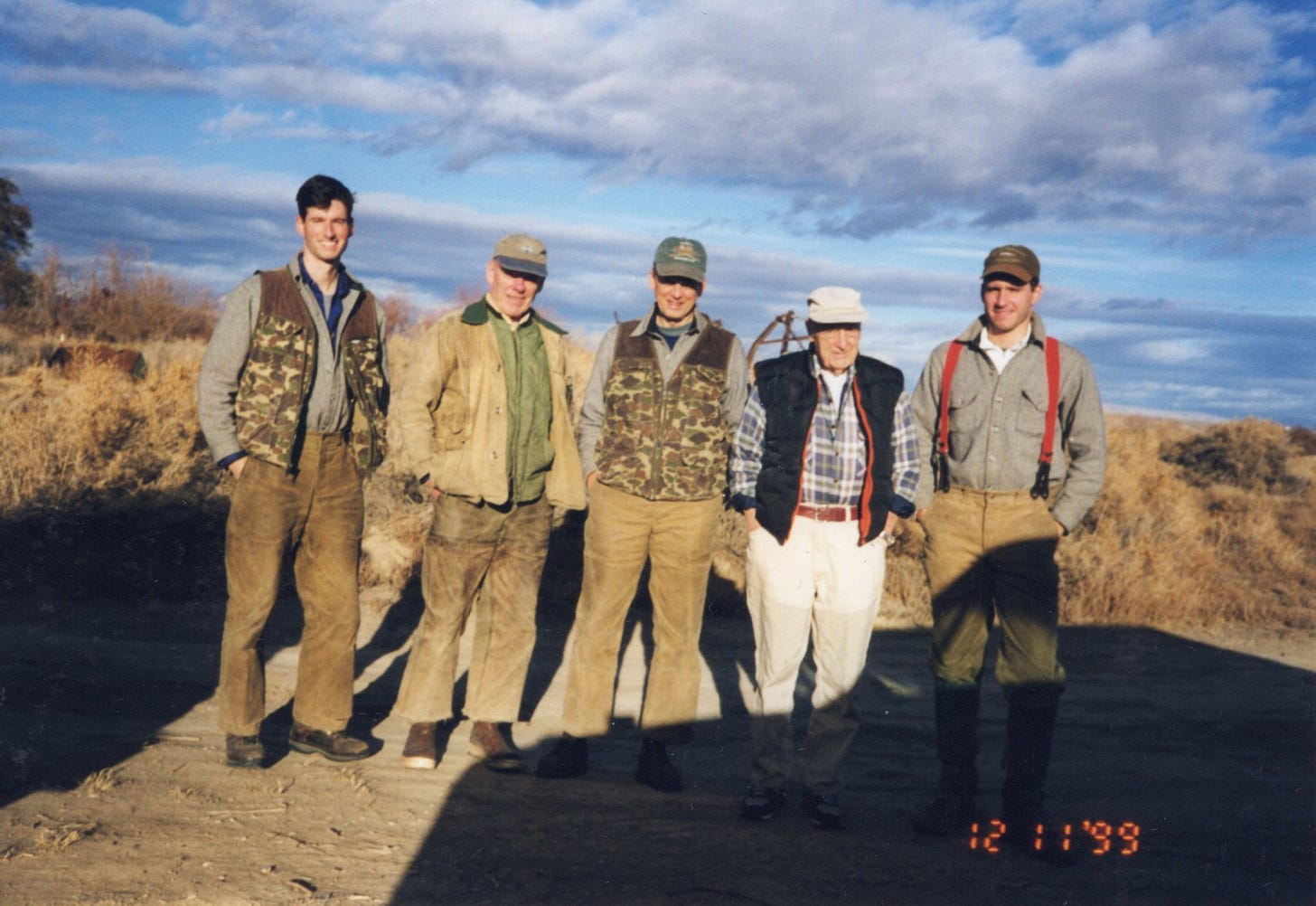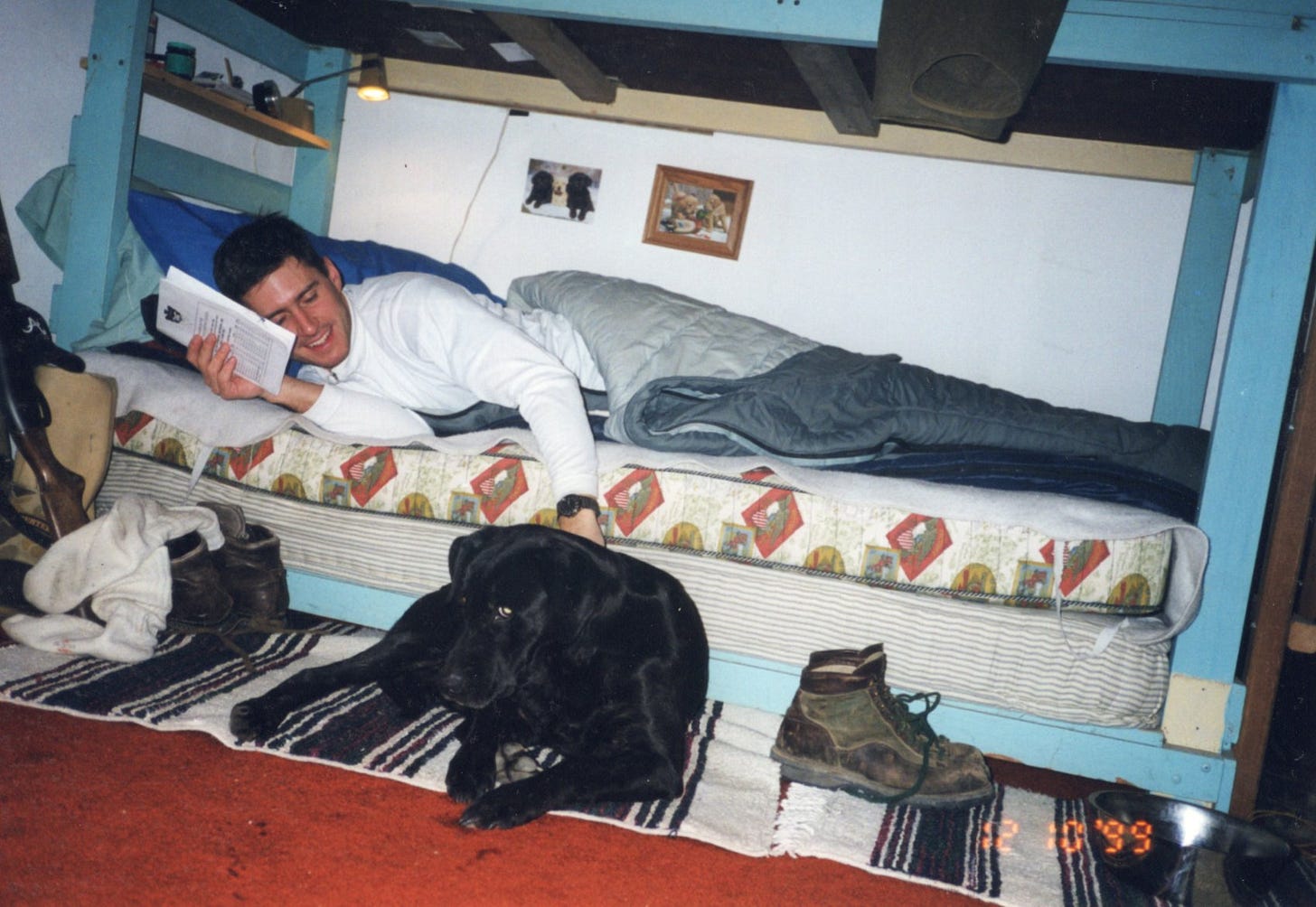For Dan, Carl, and John
hunt (hŭnt), v.t. 1. to chase (game or other wild animals) for the purpose of catching or killing. (The American College Dictionary, 1951)
trip (trĭp), n. 1. a journey or voyage. (The American College Dictionary, 1951)
The average person who has never had the privilege to be part of an ethical hunt may be tempted to generalize when it comes to their views on something they know little about. It’s easy to draw correlations, trying to fill in the blanks when there is a lack of information. I will be the first to admit that I’ve been guilty of stereotyping without having the proper knowledge to back up my initial thoughts. If I had taken one of the paths more traveled and never become a hunter, I might be tempted to think of a hunting trip as “a journey or voyage to chase (game or other wild animals) for the purpose of catching or killing.” In fact, due to the limitations of the written language, this is not a bad definition… But it is not the entire definition.
My story today stems from my most recent hunting trip with my father, brother, and two very treasured friends, who probably have more years of hunting under their belts than Andrew and I have years of living combined. If anyone knows the true definition of hunting, it is these fine fellows whom I have had the privilege to hunt with for the past ten years. I am sure some of my views and beliefs have been influenced by the experiences I sculpted with them and another of our friends who was not able to make this trip.
If someone were to ask me how many ducks we shot that trip, I would have to really think about it and recall each individual shot I made. But it is not the quantity that I go after on these trips, rather the quality. One good, clean shot to me is better than ten mediocre shots where I can’t remember exactly how the shot was made or under what circumstances. There were instances on Saturday morning where there were many ducks in the area, several within range, but none of us shot. There are times when passing up shots can be the product of the indecision of too many hunters. However, there are also times when passing up a shot can be more rewarding or satisfying than breaking the silence of wing beats.
I remember passing up a shot at a formation of tightly packed teal as they sailed through the draw—at least twice—primarily because I was not on a hunting trip according to the American College Dictionary. I knew that the teal were so close to one another that I could have hit more than one, had I shot, or maybe wounded some on the periphery of my pattern. And flock shooting is definitely a dictionary definition of hunting. But later in the day I did shoot at some teal. I made two excellent shots on two separate singles as they buzzed over me when I was up on the bluff. I can still see the sequence of events during the shots and I still feel good about making them. I knew without a doubt that I wouldn’t be wounding any other ducks in the background since they were alone, and I could focus on the primary objective
However, making a clean shot is not always as easy as it seems. We’re not out there every day, perfecting our skills, so it’s easy to slip into a state of bad habits when it comes to shooting waterfowl. All waterfowlers know what it’s like to have an off day or maybe a few off hours just as all pitchers know what it’s like to have an off game. On the flip side, it’s all that much more gratifying when your “stuff” is really working. This may be one of the general public’s biggest misconceptions about hunting. I know some people think all the hunter has to do is go out and point the barrel of a shotgun in the general direction of the bird and pull the tripper, filling the sky with a barrage of pellets. However, anyone who has done enough wing shooting knows there’s a lot more physics to it than that.
I’m sure there are some people who wish it were that easy. I’ve seen “sky busters” before and have always figured that they were trying to make up for their lack of skill for shooting and love for wildlife with a little blind luck. For as long as I can remember, I have not taken a shot unless I was confident that I could make it. However, could and would are two different words.
When I first started hunting at age nine, I sat out in the middle of a field, next to a clump of tall grass and shot the barrel of my single action .410 hot to the touch. I made 50 shots at 50 doves that I knew I could hit, however I would go on to hit only two. Two boxes of shells for two doves—not a bad day’s hunt. My point is—and I know that I speak for my other family members and close friends—that when we decide to take a shot, we know the deciding factor on whether or not we actually hit the target is not luck. With some experience it is easy to quickly draw the line between an in-range shot and a long shot—that if taken would probably cripple the bird at best. Limiting my shots to in-range shots is only part of it, for the littlest flinches can have dramatic effects downrange. And so I am continually striving to work out those kinks so I can make fewer, better shots. But that’s part of what makes hunting interesting. It’s not a test to see if I can push the buttons fast enough to make the little guy on the screen do what I want him to—it’s a test of my mind’s ability to make my body do what I want it to do in a dynamic fashion—and it’s exciting.
hunting trip (hŭnt·ing trĭp), n. 1. a journey with friends away from the comforts of shelter to reclaim one’s natural roots, to engage in the larger circle of life, and to be close to wild things for the purpose of setting one’s mind and body free from un-natural processes. (Bruce’s Dictionary of Natural Order, 1999)
B.F. McGlenn
Upgrade to a paid subscription to hear Bruce share the backstory and read this entry aloud.








